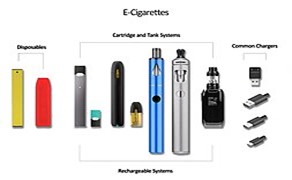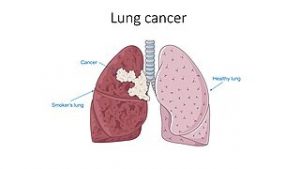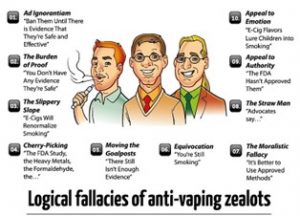
What if every time you hit your vape, there is a microscopic battle of genetic alteration to your body while externally, you enjoy a moment of relaxation? When it comes to current recreational drug use, nothing beats the experience of vaping. The sweet, fresh taste of cotton candy and bubblegum-flavored smoke lures users in, but with what hidden damage? E-cigarettes, often known as vaping, resemble cigarettes in many respects, including their design, unique and frequently loud scents, and the amount of nicotine exposed. 1When determining whether vaping can influence epigenetics, we must first consider the legislation governing it. The more legalization of vapes, the more usage among the public which can increase epigenetic effects. While it is debatable whether society is more comfortable or tolerant of vaping than smoking, the restrictions surrounding it appear to facilitate more moderate views and opinions. While the FDA is currently choosing to minimize the problem and address concerns as minimally as possible, there is a lot that is unknown about the long-term effects of vaping that prevents accurate information and crucial laws from being set in place.2

The trouble comes in the form of trying to figure out what to do when it comes to prioritizing the idea of switching between cigarettes and e-cigarettes. Whether or not the FDA chooses to enforce strict regulations or not, vaping will become more enticing either way. Considering that we don’t know the side effects or long-term effects of vaping at all, an epidemic could be extremely catastrophic. While vaping is often marketed as a safer alternative to smoking, its potential long-term epigenetic effects raise significant concerns that require further research and careful ethical consideration.
Down to The Epigenetics and Impact

To first understand these arguments, epigenetics is the forefront of understanding how smoking and vaping influence health. Epigenetics is related to the changes of gene function that are stably heritable from changes in a chromosome without alterations in the DNA sequence.3The genes can be mainly influenced by environmental factors and lifestyle choices which can potentially lead to various health effects.4Epigenetic changes in people can directly lead to adverse health outcomes such as cancer and respiratory diseases which are passed down through cell divisions or even generations. From history, cigarette smoking has been associated with many health effects, but with the impact of vaping, it’s less clear.5Epigenetic alterations include DNA methylation changes, dysregulation of microRNAs and long noncoding RNAs that have played roles in genetic and environmental factors with the development of human diseases.6Methylation patterns can influence various cellular processes of epigenetics and are associated with many health conditions like cancer, metabolic disorders, and neurodegenerative diseases. A study from Xie shows evidence from mice and human studies suggest a potential association of vaping epigenetic alterations with DNA methylation increase from usage. Their study found that exposure to e-cigarette aerosols can alter and modify gene expression in a way that prolongs individuals to cardiovascular issues and even deadly cancers. Vaping overall still lacks research and there is only current studies to show more information on some of its effects.. The research does imply that while vaping may not contain the many harmful carcinogens or chemicals present in traditional cigarettes, it still has the high potential to disrupt cellular functions through altering epigenetics. With vaping beginning to gain more popularity among younger audiences as a tool for smoking cessation, there is a deep question about whether it offers a truly safer alternative.

A study from 2019 examined the epigenetic effects of maternal vaping and tobacco exposure on offspring’s lung development. Researchers have found that maternal vaping and smoking have led to many adverse changes in an offspring’s lung health, increasing the risk of obstructive pulmonary disease (COPD) and asthma.7Epigenetic effects of vaping are not only associated with an individual user but can lead to genetic generational consequences from mother to child. While vaping may appear as safer on the surface, its epigenetic impact raises many concerns about long-term health outcomes.
Instead of cigarette cancer sticks, let’s head to Vaping!
Compared to cigarette smoking, vaping is often marketed as a healthier substitute because it contains fewer toxic substances that can cause cancer. One example is Juul Labs, which is an e-cigarette company that has marketed to young audiences that the products are “safer” or “healthier” alternatives to traditional cigarettes.8Despite the many risks associated, many companies and experts advocate vaping as a tool for harm reduction with smokers who are highly addicted or not willing to quit nicotine use entirely. For instance, The National Health Service (NHS) in the United Kingdom supports the use of vaping e-cigarettes as a method to reduce or quit smoking, explaining how vaping is a lot less harmful than smoking traditional cigarettes.9The NHS argues that it can help current cigarette smokers quit and reduce exposure to thousands of extremely harmful chemicals. By taking vapes away from companies, this argues that there won’t be other alternatives to stop smoking cigarettes. The logic behind promoting vapes as a harm reduction lies in the principle of “reducing harm”. A study stated that while there is no escape from harm in vaping, it represents a lower-risk alternative for those who would otherwise continue smoking tobacco.10The ethical argument is potential health benefits of reducing smoking-related illnesses outweigh the risks associated with long-term vaping. This perspective gears towards public health strategies with nicotine addiction and vaping to decrease epigenetic alteration.
Some experts argue that promoting vaping from e-cigarettes as a safe alternative undermines efforts to combat nicotine addiction and leads to more public health consequences. A study highlights that young adults are particularly susceptible to vaping as a safer alternative, often perceiving it as a harmless or just a “cool” social norm activity.11To younger individuals, the perception may be “low risk” to health, even though there are still levels of toxic substances such as propylene glycol, metals, and tobacco-specific nicotinate.12It still presents some significant genetic and epigenetic risks containing formaldehyde and nicotine, which can induce oxidative stress and DNA damage, leading to epigenetic changes like traditional smoking of cigarettes. 13The easy access of flavored e-liquids and the perception that vaping is less harmful than smoking may contribute to increased nicotine-dependent addiction in the younger generation. Additionally, there is concern that vaping could act as a bridge to traditional smoking, rather than a way towards quitting. The addictive nature of nicotine, regardless of usage, can perpetuate dependency, which makes it even more difficult for users to quit vaping and lead to stronger cigarettes from dependency.14
This perspective can shape the way on how nicotine addiction can cause epigenetic modifications that influence neural development and behavior, particularly in adolescents and young adults.
Bioethical Debate

There is a lack of research on the many complexities of the epigenetic effects of vaping lying in the wide variety of e-cigarette products and a lack of liquid formulas. E-cigarettes come in many flavor formulas, shapes, and sizes with their liquids containing differing levels of nicotine, flavorings, and additives. This statement makes it much harder to draw out definitive conclusions about the long-term effects of vaping on epigenetic markers. A study has understated the issue that different e-cigarette devices and liquids can produce varying levels of toxins that may influence epigenetic outcomes differently.15The most recent use and invention of e-cigarettes means that longitudinal studies on health effects are limited. The most existing research relies on animal models or in vitro studies which may not fully capture the complexity of a human epigenetic response. As a result, policymakers and public health officials must navigate a delicate balance between acknowledging the potential risks of vaping and its balanced utility as a harm-reduction tool for current smokers.
The bioethical debate surrounding vaping as a harm reduction tool centers on whether the potential benefits justify all the health risk. Another study argues that promoting e-cigarettes could justify their use, leading to more acceptance and increased usage among non-smokers16It’s a relevant concern, especially in countries like the United States, where major marketing and lack of regulations have contributed to an increased surge in vaping among teenagers. Meanwhile, the NHS and other harm reduction companies maintain advocacy that withholding e-cigarettes as an option to quit smoking could result in greater harm than good. An ethical question to think about is whether it is more justifiable to allow smokers access to potentially safer alternatives or to restrict them to prevent even more nicotine addicts. This highlights public health decisions from epidemiologists and policymakers with the vaping effects of addiction and potential generational health impacts.
Closing Remarks for the Future
The lasting impact of smoking can influence DNA methylation that contributes to various health complications. In another study, distinct DNA methylation patterns with associated smoking can influence gene expression and impact cardiovascular health.17
These various methylations can persist even after smoking, having some evidence that the epigenetic effects of smoking may have extreme complications even after many years of quitting. The sudden shift from smoking to vaping had many questions with epigenetic long-term effects still not known to scientists and consumers. Even with vaping as an alternative, these effects could be heightened in the body, making a worse or better outcome from not having as many health consequences. While vaping can help many families not dig an early grave, there still needs to be some research through the uncertainty of everything.

The bioethical question of whether vaping effects alter epigenetics is complicated with recent scientific evidence and ethical considerations. While vaping does appear to induce epigenetic changes, the length of these changes over time with long-term health implications are not yet fully understood. It is known that vaping is not risk-free, particularly because the health impact of the lungs, throat, and addiction among the new generation of youth. However, when faced with cigarette smoking, vaping may offer a lower-risk harm reduction option for those individuals who are trying to quit smoking overall or who are unable to altogether. The NHS and other companies endorse the use of e-cigarettes as a smoking cessation tool as an approach to tobacco harm reduction, but with multiple studies, it should be preceded with caution that vaping is not to be considered as a risk-free alternative.18The huge decision to promote or regulate vaping as a cigarette substitute requires a major amount of understanding and research from both the scientific evidence and the broader public health context. In the coming years, there will be even more research studies to provide proof of whether vaping has the same detrimental effects as smoking cigarettes. For now, the popularity of vaping continues to rise among teens and young adults, until there is straightforward evidence about epigenetic changes and cancer effects. Will this determine the next cancer stick of the century to replace cigarettes or something even worse?
I would like to thank Dr. Boies and Research Scholar Tutor Franchesca Tinacha for their invaluable guidance and support throughout my research paper. Their patience and assistance have been crucial in navigating this journey of conducting research. I am also deeply grateful to my family and friends for their unwavering support and encouragement, always pushing me to reach my greatest potential. Lastly, I extend my gratitude to the readers for taking the time to read my article.
- Grill, K. (2022). Advice on vaping in the face of empirical and ethical uncertainty. The American Journal of Bioethics, 22 (10), 20-22. ↵
- Grill, K. (2022). Advice on vaping in the face of empirical and ethical uncertainty. The American Journal of Bioethics, 22 (10), 20-22. ↵
- Dupont, C., Armant, D. R., & Brenner, C. A. (2009). Epigenetics: Definition, mechanisms and clinical perspective. Seminars in Reproductive Medicine, 27 (5), 351-357. © Thieme Medical Publishers. ↵
- Dupont, C., Armant, D. R., & Brenner, C. A. (2009). Epigenetics: Definition, mechanisms and clinical perspective. Seminars in Reproductive Medicine, 27 (5), 351-357. © Thieme Medical Publishers. ↵
- Xie, Z., Rahman, I., Goniewicz, M. L., & Li, D. (2021). Perspectives on epigenetic alterations associated with smoking and vaping. Function (Oxf), 2(3), zqab022. https://doi.org/10.1093/function/zqab022. ↵
- Xie, Z., Rahman, I., Goniewicz, M. L., & Li, D. (2021). Perspectives on epigenetic alterations associated with smoking and vaping. Function (Oxf), 2(3), zqab022.https://doi.org/10.1093/function/zqab022. ↵
- Zakarya, R., Adcock, I., & Oliver, B. G. (2019).Epigenetic impacts of maternal tobacco and e-vapor exposure on the offspring lung. Clinical Epigenetics, 11, 1-11. ↵
- Karam, E., Talih, S., Salman, R., El-Hage, R., Karaoghlanian, N., El-Hellani, A., … & Shihadeh, A. (2022). JUUL ‘new technology’ pods exhibit greater electrical power and nicotine output than previous devices.Tobacco Control, 31 (5), 630-634. ↵
- NHS Choices. (2024). Vaping to quit smoking. NHS. Retrieved September 15, 2024, from https://www.nhs.uk/better-health/quit-smoking/vaping-to-quit-smoking/#:~:text=While%20vaping%20is%20substantially%20less,to%20eventually%20stop%20vaping%20too. ↵
- Fenton, E., Robertson, L., & Hoek, J. (2023). Ethics and ENDS. ↵
- Ranjit, A., McCutchan, G., Brain, K., & Poole, R. (2021). “That’s the whole thing about vaping, it’s custom tasty goodness”: A meta-ethnography of young adults’ perceptions and experiences of e-cigarette use. Substance Abuse Treatment, Prevention, and Policy, 16, 1-12. ↵
- Niederbacher, N., Bermudez, L. G., González, D. M., Bernal, C., García, F., León, D., … & Rojas, A. (2021). Electronic cigarettes: Genetic and epigenetic impact.International Journal of Epigenetics, 1(1), 2. ↵
- Niederbacher, N., Bermudez, L. G., González, D. M., Bernal, C., García, F., León, D., … & Rojas, A. (2021). Electronic cigarettes: Genetic and epigenetic impact.International Journal of Epigenetics, 1(1), 2. ↵
- Xie, Z., Rahman, I., Goniewicz, M. L., & Li, D. (2021). Perspectives on epigenetic alterations associated with smoking and vaping. Function (Oxf), 2(3), zqab022.https://doi.org/10.1093/function/zqab022 ↵
- Zakarya, R., Adcock, I., & Oliver, B. G. (2019). Epigenetic impacts of maternal tobacco and e-vapor exposure on the offspring lung. Clinical Epigenetics, 11, 1-11. ↵
- Fenton, E., Robertson, L., & Hoek, J. (2023). Ethics and ENDS. ↵
- Joehanes, R., Just, A. C., Marioni, R. E., Pilling, L. C., Reynolds, L. M., Mandaviya, P. R., … & London, S. J. (2016). Epigenetic signatures of cigarette smoking. Circulation: cardiovascular genetics, 9(5), 436-447. ↵
- Zakarya, R., Adcock, I., & Oliver, B. G. (2019).Epigenetic impacts of maternal tobacco and e-vapor exposure on the offspring lung. Clinical Epigenetics, 11, 1-11. ↵



16 comments
April
Hi Nya! You did an amazing job.
This article was very well written and informative.
Keep up the good work!👏🏽
Kaitlyn Villanueva
I love how this was organized!! There was so many facts about smoking that I was not aware of so this was very interesting to read. I love how this also brought awareness to those who may be smoking. This helps them see what the consequences are and how this can impact them. I also loved the usage of visuals and their connection to the information.
arosales11
This article was well written and thought out. The author greatly explained the effects of vaping as well as adding on facts and information that many people possibly aren’t aware of. The material and flow of the story will surely impact those who have even considered touching a vape. I did notice that there are a few uses of repetition but overall very well written!
Natalia De la garza
Thank you for sharing this infographic. It effectively highlights the potential epigenetic effects of vaping, emphasizing the importance of understanding how e-cigarette use can influence gene expression and long-term health.
Freya Hayes
This article highlights the many negatives of vaping. Not many people are aware of how harmful vaping is for your body and this infographic did a really good job at outlining it. The article clearly outlined all of the negative effects and it was very easy to follow. It sheds a light on the consequences of something that has been socially accepted by society. Really great job on this article.
Macarena Machado Combe
The article is amazing. It shows both sides of the vaping argument. On one hand, vaping is marketed as a safer alternative to smoking and might help smokers quit. But on the other hand, there are potential health risks and the chance of increased nicotine addiction, making it a double-edged sword. The article mentions the lack of extensive research on the epigenetic effects of vaping, which makes it less attractive due to potential long-term side effects. The structure of the text was great, and the information was direct, straight to the point. This highlights the importance for more deep research and effective regulations.
Tri Ma
I think this is very informative. A lot of youth these days are using vapes as their quick stress relief without thinking about the consequences
Kennedy Williams
Every bit of this read was extremely informative! Great job Nya and thank you for potentially saving someone who needed to see this!👏🏾
Zahria
Very informative and captures reader’s attention. Many people do not understand the effects and this article is easy to read while informing readers the dangers of vapes.
Zoe Klupenger
Hi Nya! I think this infographic was really well written and very informative. I like how it is organized! Not many people know all the facts about smoking, so it is cool that you were able to make an infographic on this topic and do it well. Having visuals alongside really puts into perspective what you are talking about. Great job!